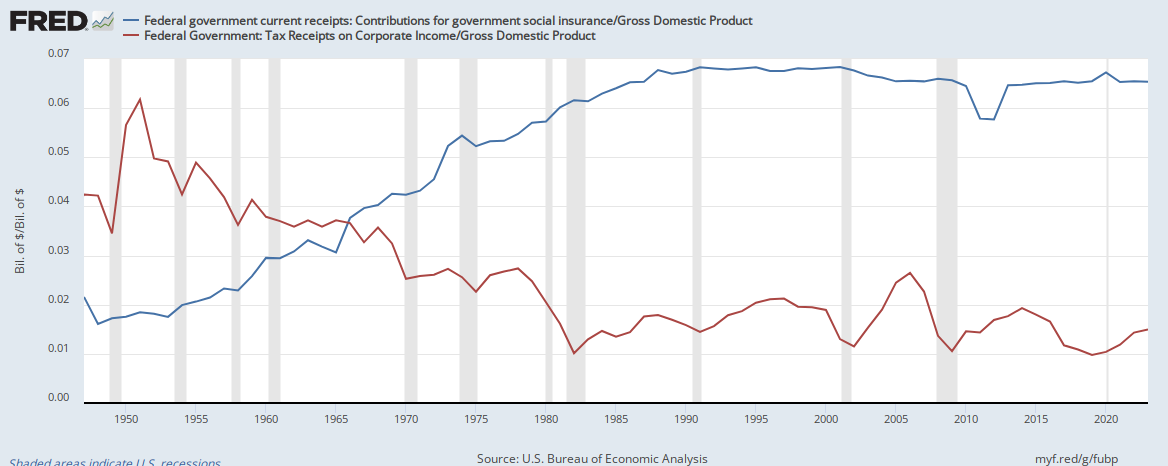- Joined
- May 21, 2011
- Messages
- 3,665
- Reaction score
- 863
- Gender
- Undisclosed
- Political Leaning
- Conservative
Well, if they can just decide to raise prices and make another $5 million, they'd do it without regard to taxes. And some competitors will be paying no tax on their profits in that industry because (among other reasons) some other line of business is losing money, or they are a startup, or got hit by a hurricane and have big losses, etc, so if your company raises prices to cover income taxes, competitors gain share, AND make a higher after tax rate of return on that product. So they can sustain lower prices, gain share, have higher returns, for a long time.
I suppose some of that might happen, but prices are basically established by costs and what the market will bear, not income taxes on the profits.
True enough, but the losses GE sustained in its financial divisions were HUGE and real. So they're entitled to take them over time - that is legitimate. GE has other tax issues, but the point of using them was as a generic example. Big huge company, zero income tax. Competitors cannot lower prices to pay off their income tax when someone like GE is always or nearly always in that competitive market.
If companies paid no income taxes, they would all be on the same footing. Then they could be focusing on lowering the cost of the goods and being price competitive in the market. Of course, they could be a value-added company and want to charge more.

